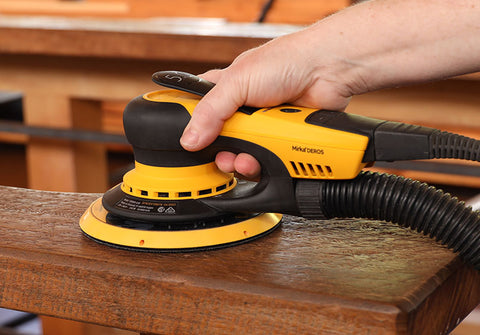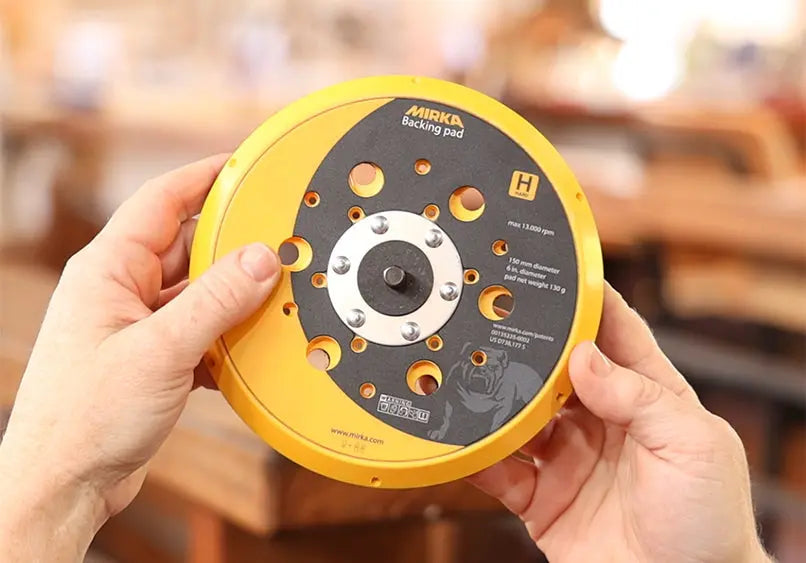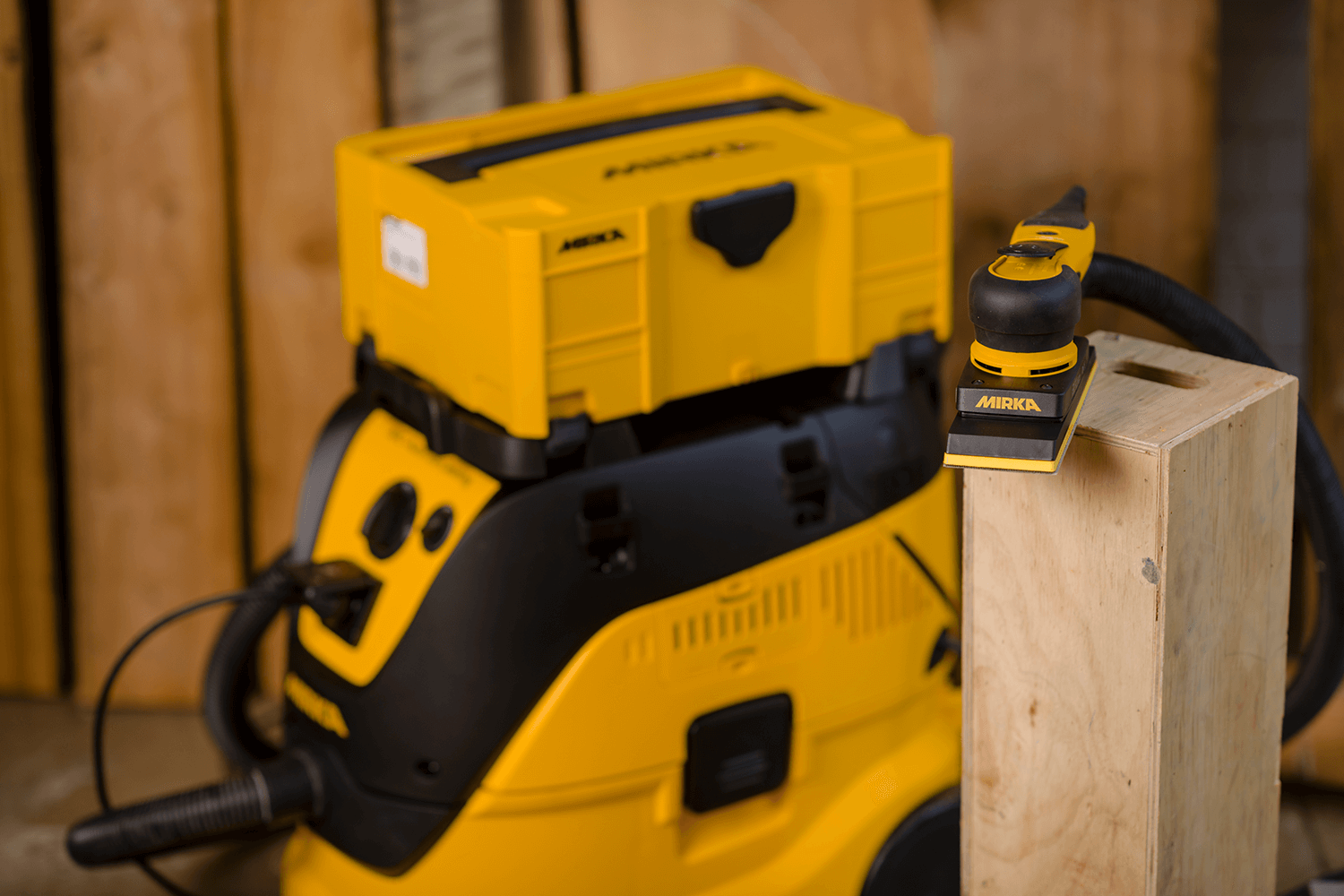Sanding Backing Pads are an important component of sanding tools. The Backing Pad serves as a base where the sandpaper is attached securely. Mirka's Backing Pads feature a hook-and-loop design, making attachment to the backing pad easy and secure. Mirka sanders have been configured to be balanced in line with the weight of the backing pad, giving even weight distribution. The 150mm Mirka Deros Sander can also be used with 125mm Backing Pads, transforming them into a 125mm sander - super handy!

What are the features of Mirka Backing Pads?
Lower vibrations
Mirka Sanders already have lower vibrations than other sanders and the Backing Pad aids the reduction of vibration. It acts as a cushioning barrier that dulls vibrations from the machine. This in turn reduces the likelihood of more serious injuries like white finger or carpel tunnel syndrome.
Machine Protection
Backing Pads helps to reduce the amount of maintenance required on the sanding machine. As a protective interface between the abrasive disc and the sanding machine, the backing pad absorbs some impact of the vibrations generated from the motor which helps to prevent excessive wear and tear on the sander's internal parts.
During prolonged sanding sessions, friction between the abrasive material and the workpiece can generate heat. The backing pad acts as a buffer, dissipating some of this heat. By preventing excessive heat buildup, it helps protect the sander's components, such as the motor and gears, from overheating and potential damage.
Dust Extraction
Which backing pad should you use?
If your sanding project requires a dead-flat surface, the Hard backing pad is ideal because it is more rigid and has less flexibility than the Medium Backing Pad. This rigidity means that there is less give when pressure is applied.
Hard backing pads are typically used for coarse sanding tasks where a flat and uniform surface is essential.
They are also very useful when doing edges, where you do not want a rounded edge.
The medium-density Backing Pad comes in the box with your tool. A medium backing pad is more flexible than a hard one but still provides some rigidity.
The increased flexibility allows for better conforming to curved or uneven surfaces while maintaining a degree of control. Medium backing pads are suitable for general-purpose sanding and can strike a balance between aggressive material removal and surface finesse.






